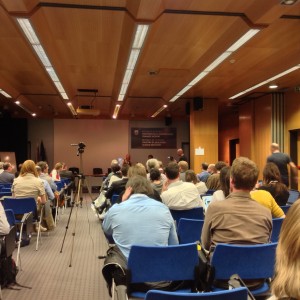DARIAH-SI je del panevropske Digitalne raziskovalne infrastrukture za umetnost in humanistiko DARIAH-EU. Osnovna dejavnost slovenske skupine DARIAH je oblikovanje, implementacija in promocija raziskovanja, projektov, orodij ter najboljših praks na področju digitalne humanistike, tako v Sloveniji kot v povezovanju z evropskim prostorom.
DARIAH je namenjena raziskovalcem in institucijam, ki želijo:
- najti in uporabljati raziskovalne podatke iz celotnega evropskega prostora,
- izmenjati izkušnje, znanja, metodologije in primere dobrih praks v različnih domenah in disciplinah,
- vedeti, da delujejo v skladu z sprejetimi in sodobnimi standardi,
- sodelovati in eksperimentirati z drugimi raziskovalci in institucijami.
Slovensko vejo DARIAH sestavljajo posamezniki iz več institucij, nacionalna koordinacijska institucija je Inštitut za novejšo zgodovino, partnerska inštitucija v ESFRI projektu pa Znanstvenoraziskovalni center Slovenske akademije znanosti in umetnosti. Septembra 2016 se je slovenski DARIAH pridružil še Institut Jožef Stefan. Slovenijo v infrastrukturnem konzorciju DARIAH-ERIC zastopa Ministrstvo za izobraževanje, znanost in šport.
Cilji slovenske veje DARIAH so med drugim tudi:
- uresničevanje deklariranih nacionalnih strategij in politik,
- poenotenje digitalne raziskovalne infrastrukture za umetnost in humanistiko na nacionalnem nivoju,
- povezovanje digitalnih podatkovnih zbirk na nacionalni ravni pod enotno platformo,
- povezovanje, diskurz ter homogenizacija skupnosti razvijalcev in uporabnikov sodobnih rešitev,
- popularizacija uporabe naprednih orodij v humanistiki.

